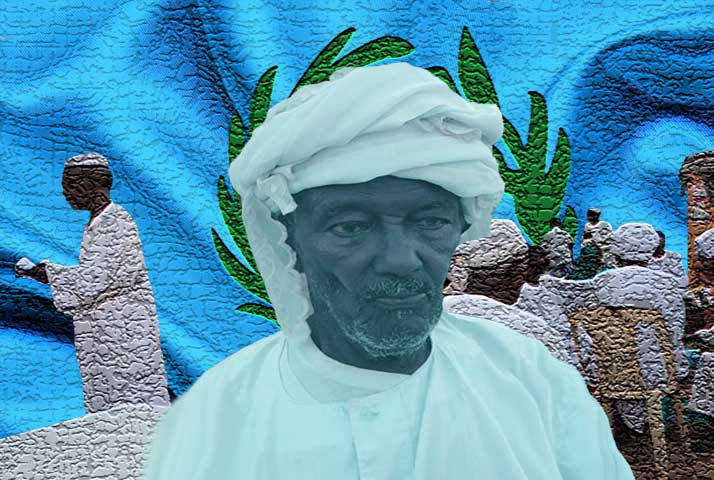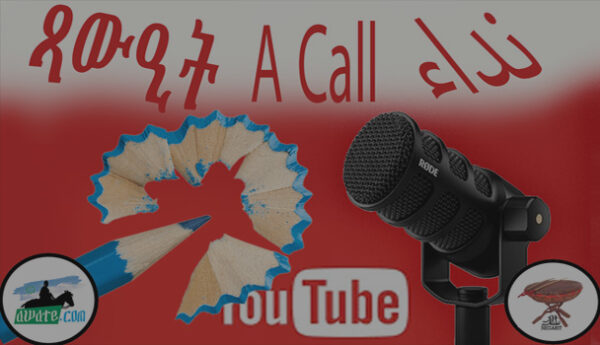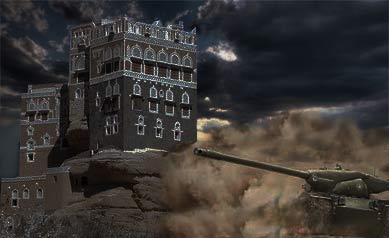Flawed Elections Are Better Than No Elections
 The supporters of dictatorship (including the supporters of Isaias Afwerki’s one-man rule) often state that it is better to have no elections than “sham elections.” Djibouti is scheduled to hold presidential elections on April 8, 2011. The current president, Ismail Omar Guelleh, who has been Djibouti’s president since May 8, 1999 is expected to be re-elected for another 5-year term.
The supporters of dictatorship (including the supporters of Isaias Afwerki’s one-man rule) often state that it is better to have no elections than “sham elections.” Djibouti is scheduled to hold presidential elections on April 8, 2011. The current president, Ismail Omar Guelleh, who has been Djibouti’s president since May 8, 1999 is expected to be re-elected for another 5-year term.
And as soon as the Djibouti elections are over, we expect Eri-TV (followed closely by its echo chamber, meskerem.net, complete with gaudy graphics) to shed crocodile tears about the limited rights of Djiboutis (just as it couldn’t stop crying about the rights of Ethiopians and Somalis and citizens of Ivory Coast.)
Is having no elections better than having an election that is neither free nor fair? Let’s take the case of Djibouti.
Democracy In Djibouti
Djibouti’s road to democracy has been bumpy. From its independence in 1977 until 1992, Djibouti was a one-party state, dominated by the People’s Rally for Progress (RPP, in its French acronym) which was the sole legal party. In 1992, Djibouti conducted a constitutional referendum on whether it should maintain its one party state or introduce multi party system of government. 97% of the people affirmed the need for multiparty system, with a caveat (also reportedly approved by 97% of the people) that there should be no more than four political parties in Djibouti. Presidential terms were set for 6 years—their terms limited to two (i.e. a president could preside for a maximum of 12 years.)
In December 1993’s presidential elections, five candidates were fielded. Hasan Gouled Aptidon, RPPs candidate (who had been Djibouti’s president since its first election in 1981), was elected by 61%, with the remaining four candidates splitting the difference. The turnout was 50% and no party boycotted the election.
In April 1999, the ruling party fielded Ismail Omar Guelleh who ran against an independent candidate Musa Ahmed Idris. Guelleh garnered 74% of the vote; his opponent, Musa Ahmed Idris, garnered 26%. Turnout was about 56%.
The next presidential election was set for 2005. Between the 1999 and 2005 presidential elections, Djibouti had parliamentary elections (in 2003.) In the parliamentary elections, Djibouti’s ruling coalition Union for a Presidential Majority (UMP) and Union for a Democratic Alternative (UAD) won 65 seats—i.e. 100% of the seats, despite the fact that its candidates had won only 62% of the popular vote. This is because Djibouti’s electoral law allows for the candidate who wins the majority vote in each electoral district to be awarded 100% of the seats. The opposition accused the ruling party of rigging the system and decided to boycott the 2005 presidential elections.
In 2005, Ismail Omar Guelleh ran practically unchallenged and, according to his election board, won 100% of the vote. In the process, he explained that he regretted “having no opponent.” But he had an opponent who withdrew because,he claimed, he couldn’t get access to the government media. Guelleh also acknowledged that this would be his last term: the constitution limited his governance to two terms.
Now, six years later, there is another presidential election. According to the constitution, Ismail Omar Guelleh cannot be a candidate for presidency. But just as Uganda did to allow Musevini to run another term, Djibouti modified its constitution to allow Ismail Omar Guelleh to run another term: the constitution now has no term-limits; but each term is reduced from six years to five years.
Moreover, in the parliamentary elections of 2008, the ruling party once again received all 65 of the parliamentary seats, after the opposition (Union for a Democratic Alternative (UAD)) boycotted the elections and the same winner-takes-all electoral law favored slim majorities to be rewarded all seats.
Will the 2011 Djibouti elections be a repeat of 2005 or will they be like 1993? We will know soon enough—although, if we judge from the complaints of the opposition, it looks more like 2005 than 1993.
Flawed Elections And No Elections
According to Freedom House, Sudan, Eritrea, Ethiopia, and Djibouti are classified as “not free.” The only one in the Horn that makes it to the “partly free” category is Somaliland—which is not recognized as a state by anyone and everyone concerned with the “unity” of Somalia wants to drag it into the fold. But Sudan, Ethiopia and Djibouti have elections—and Eritrea does not—and they are all considered “not free.” But does this mean that it is no use having elections at all; that Eritrea is no worse off than Djibouti: it is having the same super-powerful president without incurring the expenses of elections?
Of course not. With every election that Djibouti—or Ethiopia, or Sudan, or Uganda—is having, it is building on the institutions of elections. The problem with Djibouti is not the election per se—although the electoral laws could be improved—but the infrastructure required to have free and fair elections. These are free press, right of assembly, and an independent judiciary. Djibouti does not have free press: the dominant ones are state owned. According to some sources, Djibouti also has stringent libel laws—which intimidates the media into silence. Djibouti also restricts the rights of individuals and organizations to assemble freely and, in some cases, to break up organized groups by banning them. Finally, Djibouti’s judiciary is not independent as it suffers intrusion by the government.
In Djibouti—and Ethiopia, Sudan, Uganda, Kenya, etc—the rulers are constrained, even nominally, by consideration that they have to campaign for their office and they must be able to report success or, at the very least, show why they are better than the alternative. In Eritrea, the ruler has no such qualms: and that is why he can say, without blinking, after ruling Eritrea with an iron fist for 20 years, that his vision is more of the same: that there won’t be elections in Eritrea for another 30 to 40 years.
But Eritrea doesn’t belong to Isaias Afwerki alone; Eritrea belongs to all Eritreans. And it is up to Eritreans to decide—to choose—whether they want to be ruled by a tyrant or they want him to meet the fate of his fellow tyrants who have been experiencing a shock to their cockiness lately.




Awate Forum